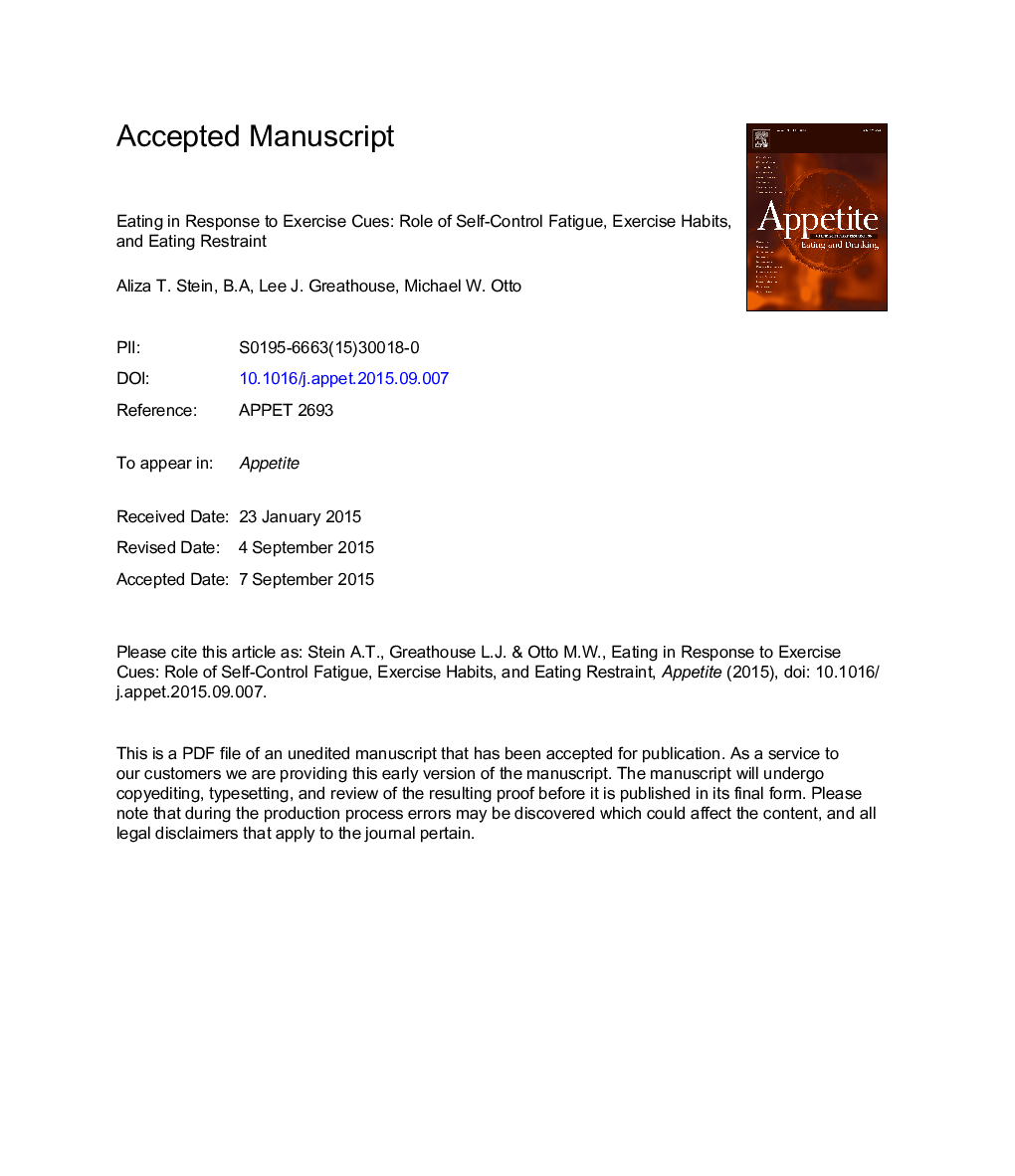| کد مقاله | کد نشریه | سال انتشار | مقاله انگلیسی | نسخه تمام متن |
|---|---|---|---|---|
| 7307991 | 1475384 | 2016 | 29 صفحه PDF | دانلود رایگان |
عنوان انگلیسی مقاله ISI
Eating in response to exercise cues: Role of self-control fatigue, exercise habits, and eating restraint
ترجمه فارسی عنوان
خوردن در پاسخ به نشانه های ورزشی: نقش خستگی خود کنترل، عادات ورزشی، و محدودیت غذا خوردن
دانلود مقاله + سفارش ترجمه
دانلود مقاله ISI انگلیسی
رایگان برای ایرانیان
کلمات کلیدی
خوردن جبران کننده، خود کنترلی، آغازگر ورزش، خویشتن داری - خودداری - پرهیز،
موضوعات مرتبط
علوم زیستی و بیوفناوری
علوم کشاورزی و بیولوژیک
دانش تغذیه
چکیده انگلیسی
Identifying moderators of compensatory eating is important for understanding the failure of many people to lose weight in response to increased exercise levels. A previous study demonstrated that individuals shown action words (e.g., “active” or “go”) were primed by these words to increase energy intake. Further studies have demonstrated that individual differences (e.g. differences in body mass) affect susceptibility to relevant priming cues. Based on these findings, this study examined individual differences, including exercise habits, tendencies toward compensatory eating, dietary restraint, and body mass that may serve as moderators of compensatory eating in the context of conceptual priming. A 2Â ÃÂ 2 design was utilized to analyze the effects of both priming and a self-control task on energy intake. Participants were presented with several snack foods under the guise of a taste test, with energy intake (kcal) during this taste test as the primary outcome variable. Results of this study indicate that, among those with higher baseline levels of exercise, lower energy intake was found for those exposed to exercise cues relative to those who did not receive these cues. In addition, the influence of the self-control fatigue condition was dependent on body mass index.
ناشر
Database: Elsevier - ScienceDirect (ساینس دایرکت)
Journal: Appetite - Volume 96, 1 January 2016, Pages 56-61
Journal: Appetite - Volume 96, 1 January 2016, Pages 56-61
نویسندگان
Aliza T. Stein, Lee J. Greathouse, Michael W. Otto,
